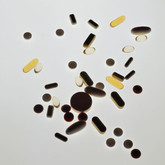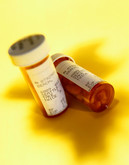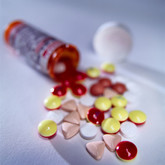Biosimilars
Biopharmaceuticals: the start of personalised medicine
Biopharmaceuticals typically bind to their biological target, e.g. a protein linked to a disease [1]. Therefore, a biopharmaceutical is likely to be particularly efficacious in a specific subgroup of the patient population. For instance, trastuzumab is a monoclonal antibody that binds to the human epidermal growth factor receptor 2 (HER2) protein and has been shown to be efficacious in the treatment of patients with metastatic breast cancer whose tumours over-express HER2 [2]. This has implications for the clinical development of biopharmaceuticals in that it highlights the need to select the most responsive target population, to collect information on relevant patient characteristics, and to identify suitable biomarkers for responders [3]. It could be argued that, in this respect, biopharmaceuticals involve a paradigm shift towards personalised medicine.
Health economic challenges for biosimilars
Biopharmaceuticals represent a fast-growing segment of the pharmaceutical market, making up one third of products in the development pipeline and accounting for 9% of pharmaceutical expenditure [1]. Whereas the first generation of biopharmaceuticals tended to consist of first-in-class products addressing unmet clinical needs in small populations, e.g. bevacizumab for metastatic colorectal cancer, the current wave of products targets larger populations, e.g. insulins for type 2 diabetes mellitus [2].
Biosimilars’ hurdles in the US
Europe serves as a model for other countries looking to define their own regulatory approval criteria. However the opposing interests of biosimilar and innovative companies is resulting in delays to the development of biosimilars in the US.
The hurdles to biosimilars in Europe
The stage is set for the entrance of biosimilars into the healthcare market. Patents are near expiry on the first biopharmaceuticals and the global biosimilars market is predicted to be worth more than Euros 1.5 billion by 2015. However, development costs will be high, unlike with generic drugs, the time taken to develop biosimilars is long, and acceptance on the market is not guaranteed.
Biosimilar EPOs show the same or better quality
Researchers have found biosimilar erythropoietin (EPO) products have the same or even better quality compared with the original branded products.
Hurdles to biosimilars in Asia
Now that a clear regulatory pathway for marketing biosimilars has been established in Europe, will Asian companies enter the global biosimilars race? Asian manufacturers face the same obstacles as western-based drugs companies, but local factors add a further twist to the tale.
Pfizer and India-based Biocon make biosimilar insulin deal
Biocon, India’s largest biotechnology company by revenue and Pfizer—the world’s biggest pharma company—announced on 18 October 2010 that they have entered into a strategic global agreement for the worldwide commercialisation of Biocon's biosimilar versions of insulin and insulin analogs (recombinant human insulin, glargine, aspart and lispro).
Hurdles to entering the biosimilars’ market
Yet more hurdles to entering the biosimilars’ market have been identified in a Reuters’ report. High development costs, complex manufacturing and legal hurdles are holding back generic drugmakers seeking to copy high cost biotech medications nearing the end of their patents.
FDA holds public hearing on biosimilars pathway
The FDA has taken further steps towards implementing guidelines on the approval pathway for biosimilars in the US by holding a public meeting on the matter.
Delays in FDA approval of biosimilar G-CSF (filgrastim)
Teva Pharmaceutical Industries announced on 30 September 2010 that the FDA has requested additional information for the Biologic License Application (BLA) for Neutroval (filgrastim), its biosimilar version of Amgen’s Neupogen (granulocyte colony-stimulating factor [G-CSF]). This action by the FDA will effectively delay any launch of the company’s first generic biotech drug in the US.













